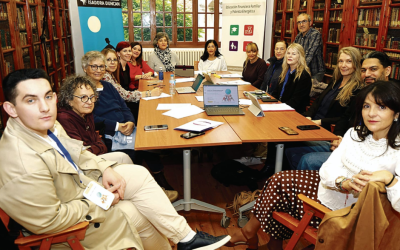Note: This article contains discussion about child abuse.
Nudify AI tools are terrifying to parents, and the federal government is introducing new laws they say will help protect children. Here’s what nudify apps are, what the government is doing, and what steps parents can take to reduce the risk of harm.
The federal government has unveiled plans to outlaw nudify tools – apps that use AI to strip clothing from people in photos. These tools can generate realistic fake nudes (images that take an ordinary, clothed photo and recreate it as a sexualised version of the person’s body).
They are cheap, easy to access, and frighteningly convincing. The resulting images are often weaponised for harassment, bullying, blackmail or reputational sabotage – sometimes with devastating mental health consequences.
The scale of the issue is growing fast. Australia’s eSafety Commissioner reported this year that complaints about deepfakes and altered sexual images of minors have more than doubled in just 18 months. Globally, traffic to nudify sites runs into the hundreds of millions of visits.
What does the law currently say?
In most Australian jurisdictions, distributing or threatening to share non-consensual deepfake sexual images is already a crime. However, only Victoria and New South Wales explicitly criminalise the creation of deepfake nudes of adults.
When it comes to children and teenagers, the rules are far stricter: producing, possessing, sharing or even requesting AI-generated sexualised content of people under 18 is illegal.
What is not yet unlawful, however, is developing or distributing nudify software itself – whether for child exploitation or adult abuse.
Independent MP Kate Chaney recently introduced a private member’s bill to close this loophole by criminalising the supply or use of nudify apps designed to create child abuse material. The government, however, has chosen a different path: focusing instead on tech industry accountability.
What will the proposed ban do?
The government has said it will consult with industry to determine the most effective restrictions. Options include geoblocking nudify websites, ordering platforms to take down advertisements or links, and requiring companies to publish transparency reports detailing their risk assessments and actions.
Still, experts warn that determined users can bypass bans with VPNs, file-sharing networks, private messaging groups or by fine-tuning open-source AI models. In other words, a ban may limit casual use but is unlikely to eliminate the problem altogether.
What can parents do?
Holding tech companies accountable is necessary, but it won’t fully prevent image-based abuse. Experts stress the importance of digital literacy and respectful relationships education.
Young people need the tools to understand consent in online contexts, recognise harmful behaviour, and critically evaluate digital content. This education should move away from shame-based messaging and instead focus on affirmative consent and ethical online conduct.
Open, ongoing conversations are one of the most effective ways to support young people’s online safety—even in situations where direct prevention isn’t always possible. You might start by asking your child what they know about AI, how they see it being used, and what responsible use looks like to them. It can also help to ask whether they’ve ever heard of explicit images being circulated at school, and how they feel about it.
These kinds of questions not only give you insight into their awareness but also create opportunities to talk about the risks and consequences of misusing AI. Make sure they understand both the personal and legal impacts of sharing or creating explicit content. Most importantly, reassure them that if they ever experience something like this—whether as a target or simply receiving an image—they can come to you first without fear of judgment.
The Australian eSafety Commissioner has some fantastic resources for talking to children and young people about nudify tools, AI, and sexually explicit content, here.
If you need support
- 1800RESPECT (1800 737 732)
- Lifeline: 13 11 14 or text 0477 13 11 14
- Suicide Call Back Service: 1300 659 467
- Kids Helpline: 1800 55 1800 (ages 5–25)
- If you or someone you know is in immediate danger, call 000.






0 Comments